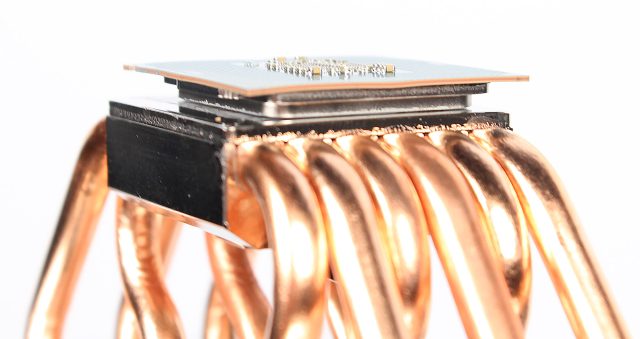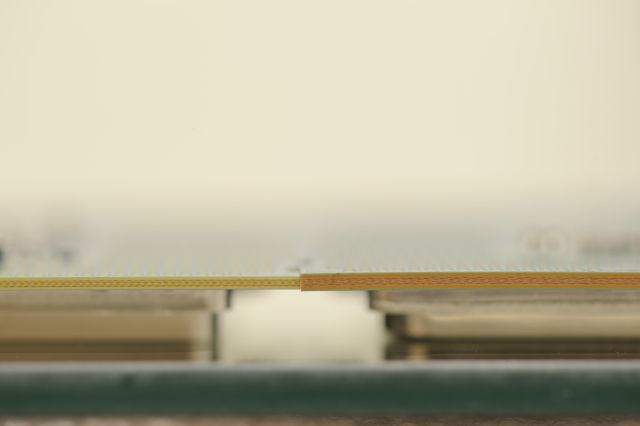
Certain third-party CPU coolers could damage Skylake CPUs and motherboards thanks to Skylake's thinner construction, according to a report by German tech website Games Hardware. In independent testing, the site found that the pressure exerted by some popular coolers caused the structurally weaker Skylake CPU to bend, thus damaging the motherboard's delicate pins and contacts.
The problems appear to stem from the substrate used in Skylake's construction, which is noticeably thinner than that of previous-generation chips. Noctua, EK Water Blocks, Scythe, Arctic, Thermaltake, and Thermalright, commenting to Games Hardware about the issue, suggested that damage from overly high mounting pressure is most likely to occur during shipping or relocation of a system. Some are recommending that the CPU cooler be removed altogether before a system is shipped.
So far, only Scythe has offered a solution to the problem. A post on its support page notes that it will be redesigning the mounting mechanism for Skylake CPUs by offering new screws to reduce the mounting pressure. The change only affects coolers that use its H.P.M.S mounting system, with the company saying that its coolers are "compatible with Skylake sockets in general." Scythe will send a set of upgraded screws for free to existing customers.
With each new generation of CPUs, Intel provides a recommended maximum mounting pressure for third-party cooler designs, which for Skylake remains the same 50 pounds (22.6kg) of static load as with its older CPUs. It's not clear yet if anyone other than Scythe might be exceeding that load, with all other manufacturers stating that their coolers comply with Intel's specifications. Push-pin designs, or those with springs to limit the tension, appear to be safe to use.

Intel flat-out refused to comment on this story when contacted by Ars Technica. It did, however, issue a comment to Tom's Hardware, claiming that it was only made aware of the issue within the last two days and is beginning to investigate. There "could be several variables at play," an Intel spokesperson said, but noted that most vendors haven't reported any problems.
This isn't the first time that Intel CPUs have suffered from packaging-related issues. In 2012, it was discovered that the company's Ivy Bridge processors featured a heat spreader mounted with thermal compound rather than the fluxless solder used in previous CPUs. This resulted in higher CPU temperatures and less overclocking headroom, as confirmed by several bouts of independent testing. Intel has since gone back to using a fluxless solder to mount heat spreaders on some of its high-end chips.
For now, until more testing has been conducted and Intel gets to the bottom of the bending issues, it might be wise to not travel with a Skylake-based PC without removing the cooler first, particularly if it's on the large side. Those building new PCs should exercise caution if re-using a cooler from a previous build and stick with coolers that have been confirmed as compatible with Skylake.
Listing image by pcgameshardware.de
reader comments
91